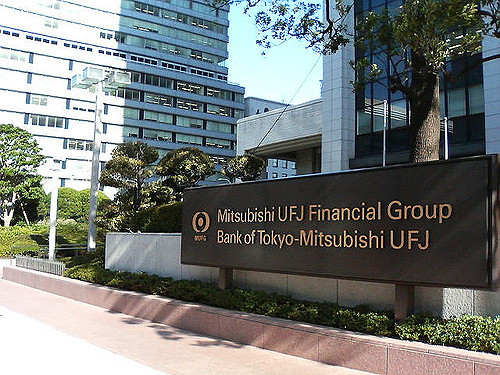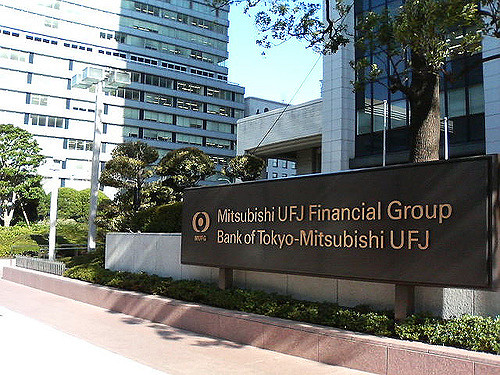
yo & via flickr
On Friday, North Korea launched a ballistic missile in the direction of Japan. The rocket flew over the island of Hokkaido, and then fell into the Pacific Ocean to the east of Cape Erimo. This is the second North Korean missile flying over the territory of Japan. Previously, DPRK held such a launch in August.
"We should be worried with this," said Nobuyuki Hirano, President of the Bank of Tokyo-Mitsubishi UFJ and CEO of the parent company Mitsubishi UFJ Financial Group, in an interview with CNBC on the sidelines of the Singapore summit.
"Japanese citizens and the public are used to a long-term peace, and they believe that the world will always be, but this is not necessarily so," he said.
In fact, according to Hirano, the recent series of missile launches - along with a large-scale test of nuclear weapons, which Pyongyang said was a hydrogen bomb - "gave us a very serious alarm signal."
These provocations were "a kind of good lesson," Hirano said, adding that it was time for Japan, the United States and other countries to unite and make it clear that they would not allow North Korea's "unlawful conduct."
As reported by earlier, Asian stock indices on Friday reacted with a short-term decline for the next launch of the DPRK missile towards Japan.
However, the changes in the markets were mostly moderate, reiterating how market participants in Asia reacted to most missile launches by North Korea this year. Nevertheless, the test of a hydrogen bomb in the DPRK provoked a short-term sale earlier this month.
Friday's launch of the rocket "is not a real escalation of what has been happening so far," an analyst at Informa Global Market said: "This is not something we have not seen before." Markets are not going to take this too seriously. "
Earlier last week, the UN Security Council unanimously approved the strengthening of sanctions against Pyongyang. Profitable exports of textiles from the DPRK are now banned, and fuel supplies to the country are limited after another nuclear test.
Japan and South Korea said after the adoption of the US Security Council resolution that they are ready to put more pressure if Pyongyang refuses to stop the aggressive development of nuclear weapons and ballistic missiles.
source: cnbc.com
"We should be worried with this," said Nobuyuki Hirano, President of the Bank of Tokyo-Mitsubishi UFJ and CEO of the parent company Mitsubishi UFJ Financial Group, in an interview with CNBC on the sidelines of the Singapore summit.
"Japanese citizens and the public are used to a long-term peace, and they believe that the world will always be, but this is not necessarily so," he said.
In fact, according to Hirano, the recent series of missile launches - along with a large-scale test of nuclear weapons, which Pyongyang said was a hydrogen bomb - "gave us a very serious alarm signal."
These provocations were "a kind of good lesson," Hirano said, adding that it was time for Japan, the United States and other countries to unite and make it clear that they would not allow North Korea's "unlawful conduct."
As reported by earlier, Asian stock indices on Friday reacted with a short-term decline for the next launch of the DPRK missile towards Japan.
However, the changes in the markets were mostly moderate, reiterating how market participants in Asia reacted to most missile launches by North Korea this year. Nevertheless, the test of a hydrogen bomb in the DPRK provoked a short-term sale earlier this month.
Friday's launch of the rocket "is not a real escalation of what has been happening so far," an analyst at Informa Global Market said: "This is not something we have not seen before." Markets are not going to take this too seriously. "
Earlier last week, the UN Security Council unanimously approved the strengthening of sanctions against Pyongyang. Profitable exports of textiles from the DPRK are now banned, and fuel supplies to the country are limited after another nuclear test.
Japan and South Korea said after the adoption of the US Security Council resolution that they are ready to put more pressure if Pyongyang refuses to stop the aggressive development of nuclear weapons and ballistic missiles.
source: cnbc.com





